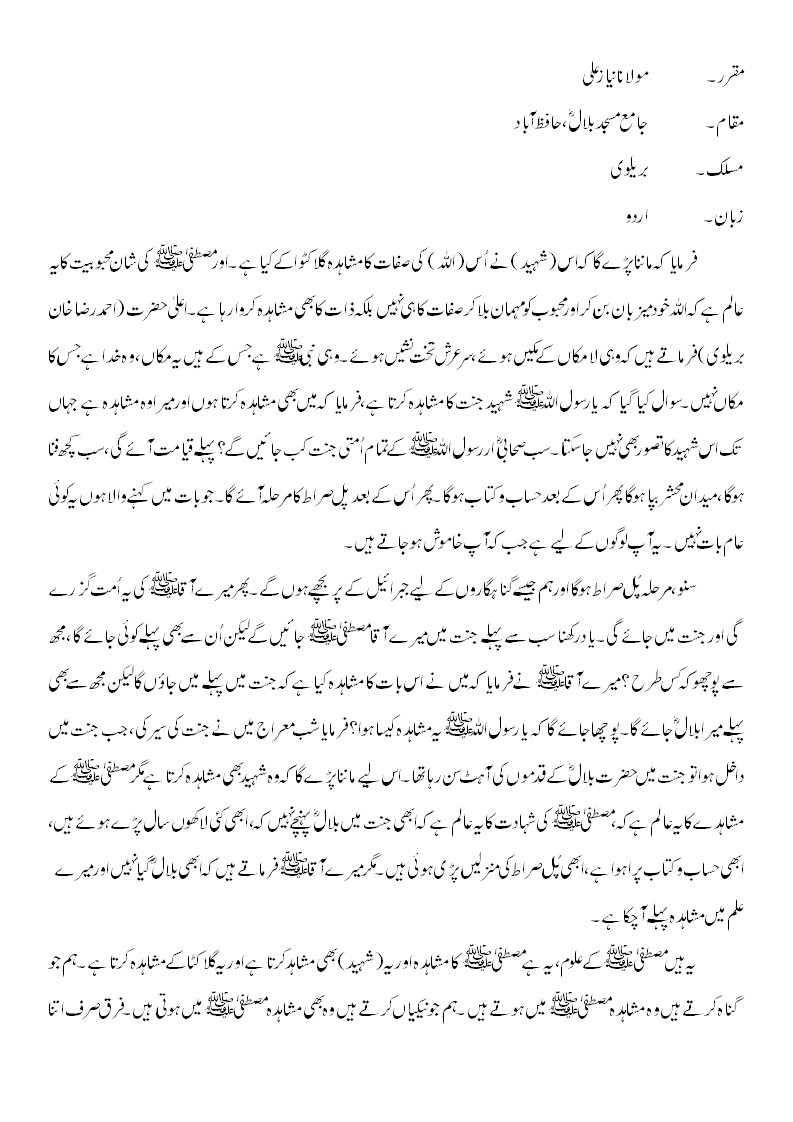Speaker: Maulana Niaz Ali
Location: Jamia Masjid Bilal, Hafizabad
Sect: Barelvi
Language: Urdu
Time: May 2010
[tab:Listen ]
Listen to Maulana Niaz Ali by clicking at the Play button below
(To download press right mouse click here and select ‘Save Target As’)
[tab:Read Urdu ]
[tab:Read English ]
Muhammad PBUH was spatial but Allah is non-spatial (la-makan) but it is Muhammad PBUH who was called by the La-Makan to come to Him and let him be observed. According to Ahmad Raza Khan Barelvi the non-spatial was enthroned on Heaven.
Someone asked the Prophet PBUH if a true Muslim can observe (preview) Paradise. The answer was that I can do it and you have no idea how far I can do it. He was asked when will the Muslims enter Paradise? He said first there will be the Day of Judgement, after that there will be accountability, after which there will the passage on the Straight Bridge (Pul Saraat).
The moment of Pul Saraat will come and the wings of Gabriel the angel would be spread on the ground for us sinners. The umma will pass and enter the Paradise. The Prophet PBUH will enter Paradise but someone else will precede him. According to the Prophet PBUH, his slave Bilal will enter before him. The followers asked him how so? He replied that during the Night of Ascension (Shab Meraj) I passed through Paradise and heard the footsteps there of Bilal. After the observation of the Prophet PBUH, it is still millions of years to the Day of Judgement but he can see Bilal entering Paradise before him. This is his foreknowledge.
The martyr also has this kind of foreknowledge (mushahida). Our good works and our sins are in the knowledge of the Prophet PBUH. The one who is good and holds fast to good conduct goes into the proximity of the Prophet PBUH; and the one who sins will not be near him. But let the sinners know that if they want to go near the Prophet PBUH they must first do penance (tauba) because he is forgiving.
[tab:END]


Leave a comment